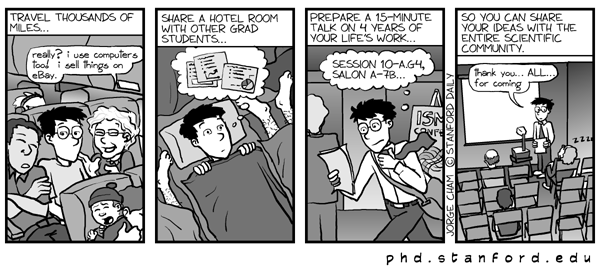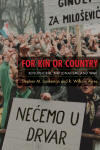
My research has focused on the interactions between political competition, ethnicity and international politics. This has produced four streams of research (with a variety of graduate students, undergraduates and other scholars), with some links:
- The International Relations of Ethnic Conflict
- Separatism: Secession and Irredentism, including For Kin or Country
- Political Institutions and Ethnic Conflict (including 2008 ISQ article)
- Current Focus: NATO In Afghanistan: Fighting Together, Fighting Alone
My work goes back and forth between international relations and comparative politics and between qualitative and quantitative methods. For the stats, I primarily use datasets that build upon Minorities At Risk Dataset [MAR], which can be downloaded at: http://www.cidcm.umd.edu/inscr/mar/ . See links below to the datasets that I have built with MAR as the foundation.
The International Relations of Ethnic Conflict:
My current project, with Kathleen Gallagher Cunningham and Erin Jenne, is on Diasporas. These are ethnic groups that no longer reside in their homelands, but whose identities are still very much wrapped up in the affairs of the homeland. The problem is that much of the work in this area is on a few prominent cases, so we really do not know the answers to two questions:
- Under What Conditions do segments of a diaspora mobilize politically?
- When will such mobilization affect the politics of the homeland and how?
We are now coding diasporic segments in the US as a first step. This is the first paper, where we present extremely preliminary results on a very incomplete dataset.
My first effort, and continued interest, has been on why countries take sides in ethnic conflicts elsewhere. Ties That Divide is the product of this line of research.
Stephen M. Saideman,
“Discrimination in International Relations: Examining Why Some Ethnic Groups
Receive More External Support Than Others.” Journal of Peace Research,
Vol. 39, No. 1 (January 2002): 27-50.
Discrim in IR.zip Zipfile contains:
an SPSS file containing the Discrimination in IR dataset
and an html file containing the Discrim in IR codebook
I have a couple of pieces that are currently being revised that are based on a dyadic dataset, Minorities and Potential Supporters [MAPS], focusing in the relationships between ethnic groups and potential supporters elsewhere. This research was generously funded by the New Dimensions of Security--Self-Determination Initiative of the Carnegie Corporation of New York. The dataset posted here is a STATA file. For an explanation of the dataset, see "Taking Sides."
“Taking Sides: Dyadic Analyses of Involvement in Other People’s Ethnic Conflicts”
“Nobody Here But Us Liberals.”
A subset of this data was used for: Stephen M. Saideman, “Ties versus Institutions: Revisiting Foreign Interventions and Secessionist Movements,” Canadian Journal of Political Science Vol. 40, No. 3 (September 2007): 1-15. This article is a response to an earlier piece in CJPS by Louis Bélanger, Érick Duchesne and Jonathan Paquin challenging my stuff. I use three sets of data for this piece: theirs with an added variable; an abbreviated version of the MAPS dataset; and the MAPS dataset posted above.
As part of my interest in the international relations of ethnic conflict, I considered with Beth Dougherty and Erin Jenne how secessionist movements might try to shape their identities to appeal to both domestic and international audiences:
This collaboration with Erin Jenne led to a second one, where we test her theory of separatism:
Erin K. Jenne, Will Lowe,
and Stephen M. Saideman “Separatism as a Bargaining Posture: A Panel Data
Analysis of Minority Demand,” Journal of Peace Research Vol. 44, No. 5
(September 2007).
The data for this paper is
here.
I wrote a review piece that argues that much of the literature on managing ethnic conflict ignores a fundamental problem—that getting countries to cooperate is especially difficult:
Separatism: Secessionism and Irredentism
My interest in the international relations of separatism led me towards the domestic politics of secession and irredentism.
I have worked with Bill Ayres on a series of pieces that consider factors that are associated with separatism in general in one piece and then irredentism more directly in a second.
R. William Ayres and Stephen M. Saideman, “Is Separatism as Contagious as the
Common Cold or as Cancer? Testing the International and Domestic Determinants
of Secessionism,” Nationalism and Ethnic Politics, Vol. 6, No. 3 (Fall
2000): 92-114.
and
Stephen M. Saideman and R. William Ayres, “Determining the Sources of
Irredentism: Logit Analyses of Minorities At Risk Data,” Journal of Politics,
Vol. 62, No. 4 (November 2000): 1126-1144.
The dataset for these articles is a modified version of Phases
1 and
3 of MAR.
 Our book focuses on the irredentism that did and did not occur in the
aftermath of Communism in the 1990's: "For Kin or Country: Xenophobia,
Nationalism and War After Communism." It was published by Columbia
University Press in June of this year (2008). A piece of it,
Pie Crust Promises, was published as an article in the June
2007 issue of Foreign Policy Analysis.
Our book focuses on the irredentism that did and did not occur in the
aftermath of Communism in the 1990's: "For Kin or Country: Xenophobia,
Nationalism and War After Communism." It was published by Columbia
University Press in June of this year (2008). A piece of it,
Pie Crust Promises, was published as an article in the June
2007 issue of Foreign Policy Analysis.
Political Institutions and Ethnic Conflict
During my time at UCSD, I took a course on the impact of a variety of institutions upon ethnic conflict with Arend Lijphart. Years later, after falling into the study of ethnic conflict, I found myself asking questions about the impact of political competition upon ethnic conflict. Johanna Birnir and I are collecting data to extend this agenda.
The first piece published in this stream was:
Stephen M. Saideman,
David Lanoue, Michael Campenni, and Samuel Stanton, “Democratization, Political
Institutions, and Ethnic Conflict: A Pooled, Cross-Sectional Time Series
Analysis from 1985-1998,” Comparative Political Studies, Vol. 35, No. 1
(February 2002): 103-129.
Spss file containing the dataset,
Stata file
The most recent paper presented is:
“The (Exaggerated) Perils of Democracy: Analyzing Democracy’s Influence on Different Forms of Communal Dissent” with David Lanoue, Amy Cox and Suranjan Weeratnthe. We used both state-level and group-level pooled, cross-sectional time series data for this project.
A related paper with David
Steinberg, "Laissez Fear: Assessing the Impact of Government Involvement in the
Economy on Ethnic Violence" appeared in
International Studies Quarterly,
Vol. 52, No. 2 (June 2008): 235–259. We have included the data for the
state-level panel
data, the state
level time series, a
do file and an
addendum to the
article that presents additional analyses.
NATO in Afghanistan: Fighting Together, Fighting Alone
This project builds on my experience in the Pentagon and the theoretical interests of David Auerswald on the impact of institutions on civil-military relations and foreign policy. We seek to understand how countries control their militaries in distant multilateral military operations. We originally intended to compare NATO's efforts in the Balkans with those in Afghanistan, but there is enough variation across many dimensions in Afghanistan that our focused has narrowed to the one theatre. We started off emphasizing the role of NATO's institutions:
The first piece of this project was presented at the 2006 APSA: “How to Kill a Military Career: Problem of Delegation in Multilateral and Unilateral Interventions,” with David Auerswald and Michael Tierney."
The more recent stuff focuses directly on the caveat problem dividing NATO, which we presented recently at the APSA meeting in Toronto (Saideman and Auerswald, NATO at War 82609.pdf) and has become more of an effort in comparative foreign and defense policy than in the design of an international organization.
Our first published piece comes out in ISQ in March 2012. We hope to have pieces in edited volumes and the book itself also come out in 2012/13.